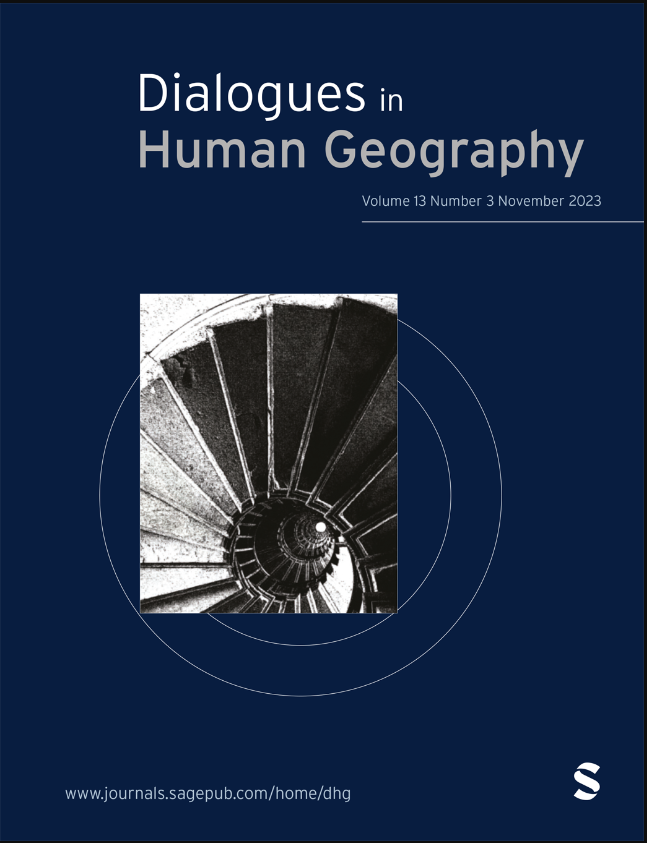拒绝时空不稳定性:对“居住扩展”的回应
IF 8.2
1区 社会学
Q1 GEOGRAPHY
引用次数: 0
摘要
这篇对Simone et al.(2023)《居住在扩展区》的评论探讨了这个短语的确切含义,对谁来说,它激发了困惑和原因,以及如果他们要表达集体拒绝广泛时空不稳定性的东西,那么参与地理研究可能意味着什么。本文章由计算机程序翻译,如有差异,请以英文原文为准。
Refusing spatiotemporal unfixity: A response to ‘Inhabiting the extensions’
This commentary on Simone et al.'s ( 2023 ) ‘Inhabiting the Extensions’ explores what exactly this phrase could mean, for whom it inspires bewilderment and why, and what it might mean to engage the geographical research drawn upon if they were to express something about collective refusal of widespread spatiotemporal unfixity.
求助全文
通过发布文献求助,成功后即可免费获取论文全文。
去求助
来源期刊

Dialogues in Human Geography
GEOGRAPHY-
CiteScore
8.00
自引率
4.00%
发文量
86
期刊介绍:
Dialogues in Human Geography aims to foster open and critical debate on the philosophical, methodological, and pedagogical underpinnings of geographic thought and practice. The journal publishes articles, accompanied by responses, that critique current thinking and practice while charting future directions for geographic thought, empirical research, and pedagogy. Dialogues is theoretically oriented, forward-looking, and seeks to publish original and innovative work that expands the boundaries of geographical theory, practice, and pedagogy through a unique format of open peer commentary. This format encourages engaged dialogue. The journal's scope encompasses the broader agenda of human geography within the context of social sciences, humanities, and environmental sciences, as well as specific ideas, debates, and practices within disciplinary subfields. It is relevant and useful to those interested in all aspects of the discipline.
 求助内容:
求助内容: 应助结果提醒方式:
应助结果提醒方式:


